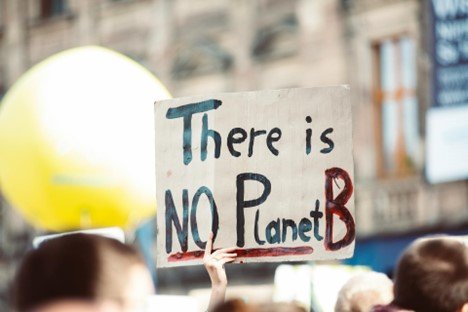27 Ways to Be More Environmentally Friendly
/If you are concerned about the environmental impact of your choices and want to make sustainable choices, then you are not alone. Being environmentally friendly is becoming increasingly important in today's world. With the effects of climate change becoming more and more apparent, it's important that we all do our part to reduce our impact on the planet.
The environmentally conscious population of today is aiming to reduce their carbon footprint. By making small changes to our daily habits, we can all contribute towards a more sustainable future. There are many ways in which we can be more environmentally friendly, from using public transport instead of driving, to reducing our use of single-use plastics. This article will provide 27 practical tips and ideas for becoming more environmentally friendly, so that we can all do our part to protect the planet.
1. Recycle: Recycling is one of the most effective ways to reduce pollution since it helps in bringing down the waste going into landfills. While recycling is deeply ingrained in our daily lives, you would be shocked to see the number of products that do not get recycled, such as plastic.
2. Compost: A lion's share of everyday household elements such as yard trimmings, coffee grounds, food scraps, cardboard, brown paper bags, and eggshells can be composted in a kitchen compost bin. In the United States, some municipalities offer free compost bins to encourage people to reduce the amount of food waste going to landfills.
3. Local shopping: When you prefer getting everything from the community you live in, you not only support the local businesses in your area but also minimize your carbon footprint to a great extent.
4. Reduce water wastage: Naturally, we have already taken water for granted as it is readily available. But this natural element is a non-renewable resource that needs to be managed efficiently. You should never allow the tap to run and check for leaks in your water outlets. Also, opting for a flow-restricting shower head and using washing machines and dishwashers only when they are full will help reduce water wastage.
5. Use natural sources of light: Save on electricity by allowing natural light to flow in your house. LED bulbs take up to 80 percent less electricity than traditional bulbs. Therefore, replacing them with LED bulbs can help save energy. Also, with ev charger installation in your electric vehicles, you can charge it faster than standard plug sockets.
6. Use cycle: Cycling is a low-impact means of transportation that doesn't involve fossil fuels. Moreover, it is great for your physical and mental health.
7. Reduce food wastage: Did you know that 1/3rd of all food produced gets wasted? And 95 percent of this food ends up in landfills. When you purchase the amount that you will require, you will not just save money but reduce the level of methane emissions.
8. Reduce plastic use: A major percentage of plastics that are thrown into landfills are not recyclable indicating that it paves the way for more pollution. An easy way of mitigating this is to use less plastic.
9. Consume less meat: A vegetarian diet offers a great benefit to your pocket and helps keep you in shape. But most importantly, reducing meat intake will aid in reducing greenhouse gases, water, and other energy for raising livestock. After all, the meat industry points out that the meat industry takes up around 20 percent of the global greenhouse effect as per the reports of the United Nations.
10. Make smart updates: The things you use daily have a shelf life. Although obsolescence is mainly applicable to handheld electronics, it can be used for everything you purchase. With the EO mini pro charger, you can analyse the amount of electricity used and access other smart features to reduce your environmental impact.
11. Conserve Water: Turn off the tap when you're brushing your teeth or washing dishes and fix any leaks in your home. Consider installing low-flow toilets, showerheads, and faucets to reduce water usage.
12. Save Energy: Turn off lights and appliances when they're not in use and use energy-efficient light bulbs and appliances. Also, consider installing a programmable thermostat to reduce your home's heating and cooling costs.
13. Use Eco-Friendly Products: Choose products that are made from sustainable or biodegradable materials and that don't contain harmful chemicals. Look for products with eco-certifications such as the Energy Star label, the Forest Stewardship Council certification, or the Green Seal certification.
14. Plant Trees: Trees absorb carbon dioxide and produce oxygen, making them an important part of the ecosystem. Planting trees can help offset carbon emissions and reduce the impact of climate change.
15. Reduce Meat Consumption: Meat production is a significant contributor to greenhouse gas emissions. Consider reducing your meat consumption or try a vegetarian or vegan diet.
16. Reduce Car usage: Cars are a major source of air pollution and greenhouse gas emissions. Consider using public transportation, biking, or walking instead of driving whenever possible.
17. Support Local Farmers: Buying locally grown food can reduce the carbon footprint of food transportation and support local farmers. Look for farmers' markets or community-supported agriculture programs in your area.
18. Educate Others: Spread the word about the importance of environmental protection and encourage others to adopt eco-friendly practices. Share information about sustainability with friends, family, and coworkers.
19. Buy Secondhand: Consider buying used items instead of new ones to reduce the demand for new resources and minimize waste. You can find secondhand items at thrift stores, online marketplaces, and garage sales.
20. Reduce Paper Usage: Use electronic billing and statements to reduce the amount of paper you use and opt-out of junk mail to reduce waste. When you do use paper, make sure to recycle it.
21. Use Eco-Friendly Cleaning Products: Traditional cleaning products can contain harmful chemicals that can pollute the air and water. Choose eco-friendly cleaning products that are biodegradable and don't contain harsh chemicals.
22. Reduce Energy Usage: Turn off electronics and unplug chargers when they're not in use and choose energy-efficient appliances and light bulbs to reduce your energy usage.
23. Use a Reusable Water Bottle: Reduce your use of disposable plastic water bottles by using a reusable water bottle made from glass, stainless steel, or BPA-free plastic. Many reusable water bottles come with filters to improve the taste of tap water.
24. Support Renewable Energy: Choose energy providers that offer renewable energy options, such as wind or solar power. You can also install solar panels on your home to generate your own renewable energy.
25. Reduce Food Waste: Plan meals ahead of time and buy only what you need to reduce food waste. Use leftovers to make new meals or donate excess food to a local food bank.
26. Choose Sustainable Clothing: Look for clothing made from materials such as organic cotton, hemp, or bamboo, or buy clothing made from recycled materials. You can also choose clothing brands that prioritize ethical and sustainable practices.
27. Support Environmental Organizations: Support organizations that work to protect the environment through donations or volunteering. You can also participate in local environmental events and clean-up initiatives.
About the Author:
Paul Carlsn is a content writer, who is passionate about crafting engaging, informative, and persuasive copy that resonates with readers. With years of experience in the Digital Marketing industry, Paul has honed his skills in creating content that meets the needs of both clients and their audiences.









































